Paranormal
The paranormal is interesting; it’s exciting; it’s revealing. It is controversial, mainstream, a way of life for some and something to be avoided by others. Paranormal activity is also a divisive topic – a bit like politics and religion!
Today, the paranormal is popularised by images of ghosts, messages from the dead and reports of objects flying around rooms – but it is so much more than all this sensationalised hype. The paranormal is at the heart of what it means to be human, to be alive and to be dead! It seeks to challenge us to look at who we are, why we are here, and what are our beliefs about life itself, life after death, life before birth, even life between life!
The paranormal challenges us to question what we know about consciousness – not only human consciousness but all living consciousness (very little, apparently). What do we know about death (not much that the experts agree on, least of all when it actually happens)? What about the reports of levitating spirits and unearthly calm that occur at that moment of some deaths (but not all)? Is there a step-by-step process of preparation that takes place before the final encounter (a new area of study)? Do memories pass from one life to the next (reincarnationis widely accepted in some cultures, but not others)? If this is the case, then what is actually transferred, and how (personal genetics and human consciousness spring to mind)?
Yes, the paranormal is exciting but for so many more reasons than those that first spring to mind.
The paranormal is at the very heart of who and what we are. The study of the paranormal embraces the phenomena that cannot readily be explained by the laws of science and in my studies specifically this includes deja vu, apparitions, near-death experiences, out-of-body experiences, psychokinesis, premonitions, auras, mediumship, reincarnation, and telepathy.
So, what do we mean by these phenomena? Recently I completed a Master’s Degree at Monash University in Melbourne Australia and the topic of my dissertation was the paranormal, or more correctly parapsychological experiences. My thesis was based on the results of an online survey and to gather responses I needed to define what it was that I was studying. Here are the definitions I relied upon:
* telepathy is defined as mind-to-mind communication;
* precognition or premonition refers to the experience in which information about the future is obtained without the use of the five senses;
* clairvoyance or remote viewing encompasses the phenomenon whereby current information is obtained without using the five senses (ESP is a general term which encompasses telepathy, precognition and clairvoyance);
* psychokinesis (PK) refers to the ability of the mind to impact living and non-living entities;
* near-death episodes (NDE) are reported by people who have been brought back from the brink of death;
* out-of-body experiences (OBE) occur when the mind’s awareness is external to the physical body;
* reincarnation applies to the recall of events, people and places from previous lifetimes;
* hauntings include apparitions, and unexplained sounds and movements of objects, which are associated with particular locations; and
* poltergeists, which are a type of PK that may depend on the presence of some individuals who unwittingly produce the disturbing effects. More recently, poltergeists have become specifically linked to the presence of adolescents and children.
Some of the earliest reports of parapsychological phenomena are to be found in the ancient spiritual texts – The Egyptian Book of the Dead, and the Talmud, Bible, Koran, and the Kabbalah – and in the writings of the early philosophers such as Homer, Socrates, and Aristotle. Historically, the remarkable events in these texts have tended to be attributed to divine powers but more recently people have begun to question these teachings.
What, for example, is the difference between prophecy and premonition? Are miracles and psychokinesis symptomatic of the same thing? Is hearing the voice of God a type of clairvoyance? Are these the same experiences but under different names?
In some corners of academia, there are quiet rumblings to have these, and other matters involving the paranormal looked at more closely – but be warned. Studying the paranormal is a career-limiting move. Today, there are few parapsychologists in the world (under 50, at the last count) and even fewer who make a living from their expertise. Studying the paranormal is still regarded as more of a retirement hobby than a career choice!
The well-practised tradition of reporting paranormal phenomena continues today – in books, films and the media but with one very powerful addition – the internet. More and more, those who encounter the scientifically unexplained in everyday life are turning to cyberspace to make sense of what has happened to them. Some need reassurance; others are searching for like-minded people. Today, the paranormal is openly and freely discussed across websites, on blogs and in chatrooms. Yet, remarkably, very little formal research has been carried out on these everyday paranormal experiences.
In stark contrast to the abundance of paranormal self-reports on the web there is a noticeable shortage of contemporary research on spontaneous parapsychological phenomena. Unlike most academic research, my paranormal study was open to everyone aged 18 years and over (according to university ethical guidelines). Participants were self-selecting – believers, non-believers, paranormal experients and sceptics – all were welcome. All that was needed was an ability to speak English, access to the internet and a willingness to participate. As this was the first time such a study had been conducted it was impossible to know at the outset how many participants there would be. Fifty? A hundred? A thousand? Maybe more?
Over 4,000 people stormed the survey website to document their paranormal experiences and while the majority of the participants were from the United States of America, Australia, United Kingdom, and Canada nearly 60 countries were represented. More women than men participated, but that ratio was closer than most people would have guessed – 60/40. The majority of the participants were in the 18-35 year age range but they were closely matched by the 36-55 year olds.
Some results were predictable: spontaneous parapsychological experiences appear to be universal, and not limited to adulthood; deja vu was the most widely reported experience; and very few people reported experiencing near death episodes. Other results were far more surprising including the (statistically significant) tendency for women to report experiences of deja vu, apparitions, out-of-body experiences, auras, mediumship, reincarnation, and telepathy. Conversely, why do men and women equally report incidences of psychokinesis? Why did some countries report more of certain types of phenomena than others? And, why all the references to the female bloodline?
The survey raised as many questions as it answered! So, what could I do but listen to the requests to reopen it. My aim is to gather the largest database of information on spontaneous paranormal experiences. Would you like to contribute anonymously? Click here for the Paranormal Survey.
I believe the study of the paranormal is the study of the essence of life. Do you agree?
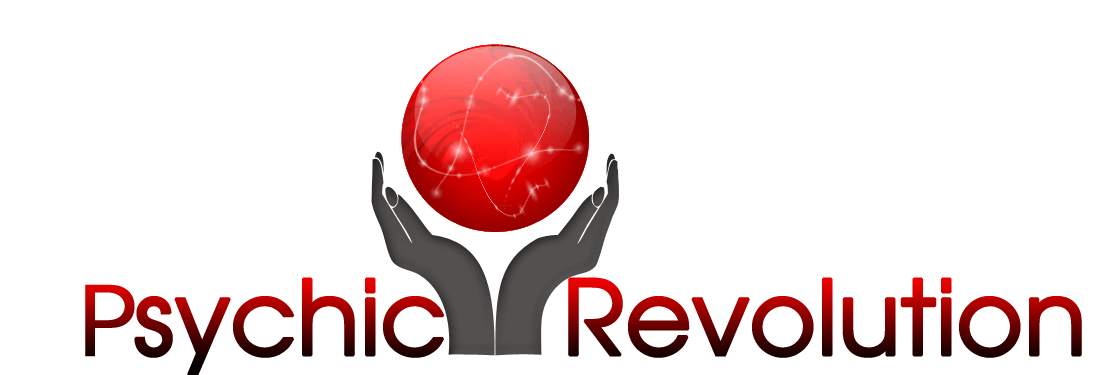

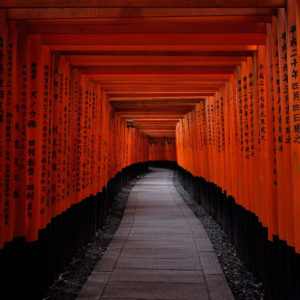
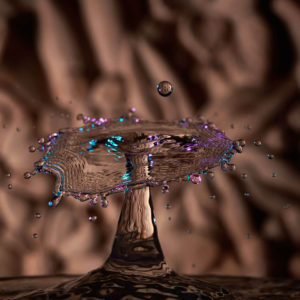
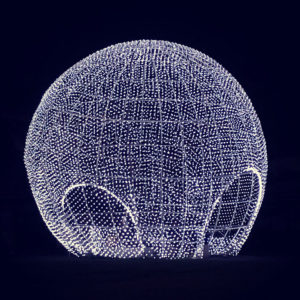
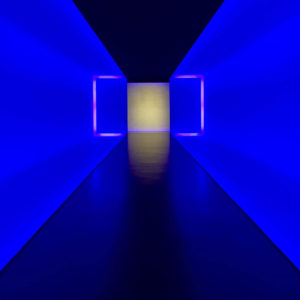

Hi, very intersting. I´m Clinical Parapsychologist and Research in Brazil. My Blog is: fernandosalvino.blogspot.com and my website is: http://www.parapsicologiaclinica.com
Bye
Dr. Fernando Salvino
Transferred from old blogsite to PsychicRevolution.com
Hi Fernando. Your English is obviously much better than my Portuguese. However, with the help of Google Translate I have got a sense of the good work you are doing in San Jose. Thanks for stopping bye. Ciao Rosemary
Re: your question, “Is there a step-by-step process of preparation that takes place before the final encounter (a new area of study)?” I’m not sure that this is the step-by-step process that you mean but I have known people who were aware of their impending deaths, including accidental deaths. In the case of accidental causes, they seemed to feel confused and sad but resigned. With both natural and accidental deaths, there is often a sense of emptiness, as if their spirits might have already begun to detach a couple of days or more prior to the death.
Not all who sense their own impending death share their foreboding with others but many do. I think this would be a very worthwhile area of study and we would be surprised to find how many of the survivors would be grateful the opportunity to say, “Yes, he knew,” and relate their experiences. It’s something they need to talk about and their are few venues for doing that.
Nettie
Your mentioning of the spirit starting to detach prior to death reminds me of something I read when I was pregnant. I seem to recall that the book was called <a href="The Secret Life of the Unborn Child: How You Can Prepare Your Baby for a Happy, Healthy Life“>The Secret Life of the Unborn Child.
Anyway, the book spoke about how some souls try on their new body, in utero before they commit to this lifetime. Other souls just commit from the outset. I remember thinking that this line of thought rang true for me. What do you think?
The paranormal isn’t the essence of life but it may be a pathway to the essence. Life on this planet is experienced in a three-dimensional, carbon-based structure; and to this extent, the five senses are the essence of life.
However, we know there is a so-to-speak formless life not available to the five senses, and the paranormal must be aspects of that sort of life, usually called spiritual.
We don’t understand the relationship between these two forms of life.
What an excellent website! A very thoughtful post Rosemary.
.. For too many (“in the flesh”), the paranormal world is like a powerful ocean breeze that washes over and around a beach condo where lazy occupants lounge, tightly sealed in their air-conditioned shell.
Without the lovely seaside, no powerful breezes, no fresh salty air, no energizing negative ions to pour into their air conditioners–there to be processed, desalinated, made tepid, fake, safe.
These cocooned occupants are like timid pupa, hiding from the sensory blasts beyond their walls that attracted them to the beach in the first place…
But the roar of the waves, the intruding screech of seagulls, the incredible cycles of life pounding waves of exclamation points outside their chambers, lure them to heed the desire to throw open their french doors, drink in the magnificent sunset, welcome the horizon’s new curves at dawn’s watery light…
Happy discoveries to you, explorers of real life!
Hi Scott.
Thanks for the compliment and the post.
I notice you re a Rev. Perhaps, when you have the time you might like to share with us your journey to becoming a Rev?
All the best.
Rosemary